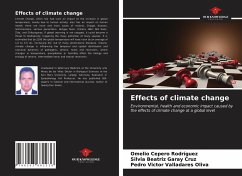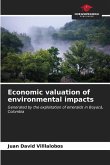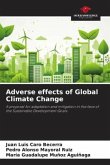Climate change, which has had such an impact on the increase in global temperature, mainly due to human activity, also has an impact on human health; there are more and more cases of malaria, Chagas disease, leishmaniasis, various parasitosis, dengue fever, cholera, West Nile fever, Zika, and Chikungunya. If global warming is not stopped, it could become a threat to biodiversity, triggering the mass extinction of many species. It is estimated that by 2100 the global temperature will have risen by an average of 1.0 to 3.5 oC, increasing the risk of many vector-borne diseases. Clearly, climate change is influencing the temporal and spatial distribution and seasonal dynamics of pathogens, vectors, hosts and reservoirs, where changes in temperature, precipitation or humidity affect the biology and ecology of vectors, intermediate hosts and natural reservoirs.
Bitte wählen Sie Ihr Anliegen aus.
Rechnungen
Retourenschein anfordern
Bestellstatus
Storno








